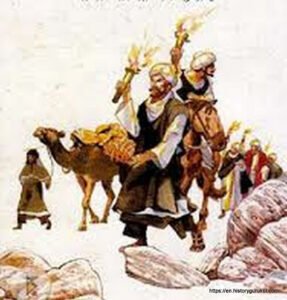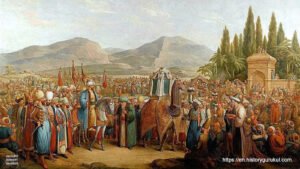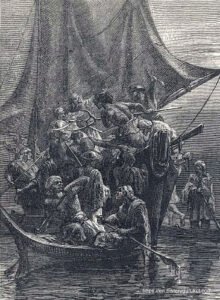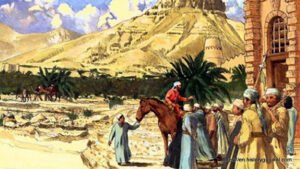Ibn Battuta was a 14th-century Moroccan explorer, who is widely regarded as one of the greatest travelers in history. His travels took him across the Islamic world, including Africa, the Middle East, and Central Asia, as well as parts of Europe and Asia. He is said to have covered a total distance of over 75,000 miles, making him one of the most prolific travelers of all time.
Ibn Battuta

Early Life
Ibn Battuta was born in Tangier, Morocco in 1304, to a family of Islamic legal scholars. He grew up in a family of legal scholars and received a traditional Islamic education in Tangier, where he studied Islamic law, jurisprudence, and the Quran. At the age of 21, he decided to embark on a pilgrimage to Mecca, which would change the course of his life forever.

Travels
Ibn Battuta set out on his journey in 1325, traveling first to Alexandria, Egypt, and then on to Mecca, where he performed the hajj (pilgrimage). After his pilgrimage, he continued his journey, traveling throughout the Islamic world, visiting cities such as Damascus, Baghdad, and Istanbul, and eventually arriving in India, where he spent several years at the court of the sultan of Delhi.
After leaving India, Ibn Battuta traveled to China, where he spent several years exploring the country and meeting with Chinese officials and scholars. He then traveled to Southeast Asia, visiting Sumatra and Java, before returning to India.
After spending several more years in India, Ibn Battuta set out on another journey, this time traveling to East Africa, where he visited the Swahili coast and made his way down to the Horn of Africa. He then crossed the Red Sea and traveled through Arabia, visiting Mecca and Medina once again.
In his later years, Ibn Battuta returned to Morocco, where he was appointed as a judge in the city of Fez. He spent the remainder of his life in Morocco, dictating his travel experiences to a scholar named Ibn Juzayy, who compiled them into a book called the “Rihla” or “The Journey.”

Legacy
Ibn Battuta’s travels were remarkable for their scope and the detailed observations he made of the places he visited. He documented the customs, cultures, and religions of the people he encountered, providing valuable insights into the medieval Islamic world.
Today, Ibn Battuta is remembered as one of the greatest travelers of all time, and his name has become synonymous with adventure and exploration. His travels have inspired countless other explorers, and his legacy continues to be celebrated around the world.

Ibn Battuta’s travels were a remarkable achievement for their time and provide a valuable record of the medieval Islamic world. His legacy continues to inspire adventurers and explorers today, and his journey is a testament to the human spirit of curiosity and exploration. Ibn Battuta’s story is a reminder of the power of travel to broaden our horizons and open our minds to new experiences and ideas.
See more:



























